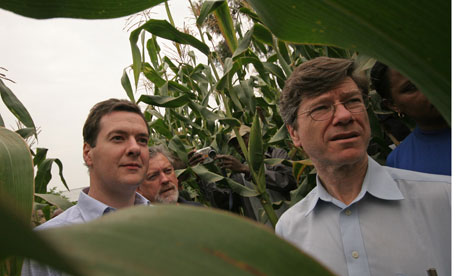ÚLTIMA HORA: Mortes incalculáveis em Sirte/Líbia, caça ao homem (negro), uso indiscriminado de drones, helicópteros e mísseis em todos os lados. Destruiu-se a cidade de Sirte para vencer uma batalha - a guerrilha e a resistência VERDE continuam. Se as acções dos Rebeldes do CNT ajudados pela OTAN não constituem um "Crime Contra Humanidade", podemos concluir que não existem mais crimes nesta terra. São várias as lições desta guerra, uma delas resta para nós, angolanos, africanos, povos em vias de desenvolvimento: QUEM QUER A PAZ PREPARE-SE PARA GUERRA. Entre, no fim das contas, vale o equilíbrio de terror.
ANGOLA HOJE. O cenário actual nos impõe a necessidade da construção de um país forte, de um país disciplinado e organizado, unido entorno a objectivos claros e partilhados: bem estar das populações e crescimento sustentável sem perder de olhos as nossa segurança económica, alimentar e militar. O mundo post-guerra fria, unipolar, é dos piores lugares para viver. Observando o que acontece em várias zonas podemos afirma que nos encontramos em plena floresta, no que se refere ao respeito das leis internacionais, aonde reina o direito da força, a lei do mais forte. Quem pode, faz o que quer. Cfr: Iraque, Afeganistam, Paquistam, Sudão, RDC, Somália, Líbia, Tunísia, Egipto, PALESTINA, etc. Países nos quais reina o caos. Tudo é controlado, tudo é programado, não aceitem nas teorias dos "acasos".
MÃOS SUJAS. Sarkozy & CO em pouco tempo organizam em África duas guerras e por incrível que pareça, em todo o continente africano não temos nenhum país capaz de dizer basta as incursões homicidas europeias. Nem mesmo a solidariedade africana e internacional existe ainda, para não citar o eloquente silêncio da organizações dos direitos humanos. As mãos de Sarkozy, Cameron, Obama & CO estão cheias de sangue dos civis inocentes que morreram em toda a Líbia. Nos dois países (Costa do Marfim e Líbia) as mortes continuam, porque os governos impostos com a força das armas não resolvem problemas que necessitam de diálogo e política desinteressada, senão no bem estar do povo de referência. Quem pode levar o Sr. Sarkozy diante de um juiz do Tribunal Penal Internacional?
UM MUNDO TRISTE E PERDIDO. Morrem milhares de civis em bombardeamentos indiscriminados em cidades e/o centros altamente habitados e nenhuma organização internacional diz nada. Nem mesmo os famosos defensores dos direitos humanos exprimiram o mínimo da perplexidade. O mundo actual, recto segundo a pax americana em debandada, recto segundo a PAZ DE BARACK HUSSEIM OBAMA, homem que todos esperavam ser o agente da mudança do nosso século, este mundo corre verso o abismo. Tarde ou cedo alguém usará a bomba suja, e se acontecer será o caos.
III GUERRA MUNDIAL. A minha tristeza não tem limites, e me sinto fraco, como fraco sou, débil, como são os países desorganizados que como ovelhas esperam a própria vez, na ordem de destruição. Para as multinacionais é fácil começar uma guerra em qualquer país do mundo, basta armar os descontentados, usar as organizações dos direitos humanos para sujar os regimes no poder, manipolar a informação das grandes redes internacionais e tudo é feito. Cfr. Líbia, agora Síria - entrando numa guerra civil, mais além o Irão, o próxima da lista. O que dizer? "Não sei como será a terceira guerra mundial, mas sei como será a quarta: com pedras e paus. " ( Albert Einstein )
Nos próximos dias veremos crescer a escalation contra o Irão, e ninguém dirá nada. Estamos entregues a bicharada, e neste ritmo podemos crer que tempos terríveis chegarão se quem pode nada fizer. Cada um faça o que pode, porque fazer o que podemos é fazer o que devemos. Informar, participar nas mobilizações internacionais (Ex. 15 de Outubro), re-compactar o Movimento dos países não alinhados, repensar a União Africana, a SADEC, etc. E' tempo de agir, basta com as argumentações sem fim.
=> O MUNDO ACTUAL: “Guerra é paz, liberdade é escravidão, ignorância é força”.. . Acorda!
Francis/PAC








